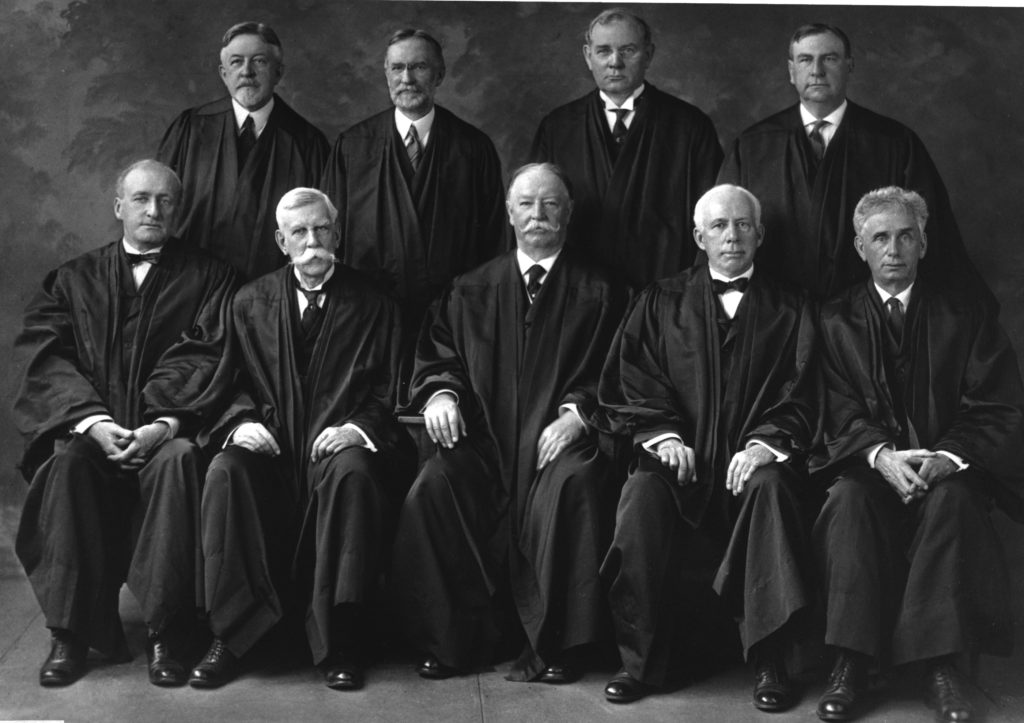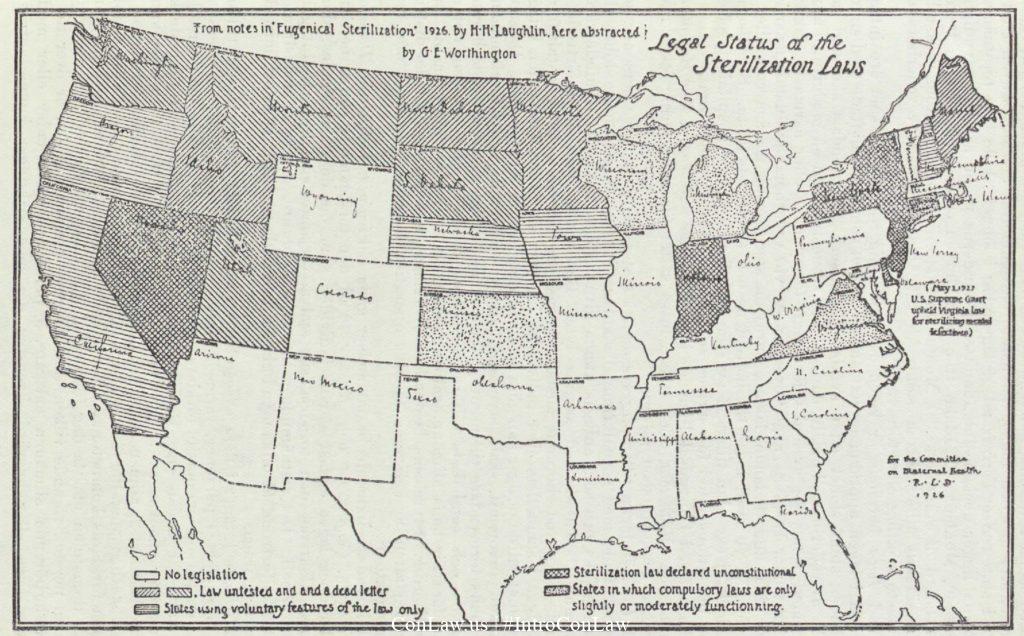











In 1924, Virginia enacted the Sterilization Act and the Racial Integrity Act. The former law allowed the government to forcibly sterilize so-called “imbeciles.” The latter law prohibited interracial marriage. (The Supreme Court declared the Racial Integrity Act unconstitutional in Loving v. Virginia (1967), which we will discuss in Chapter 38.) Both Acts were designed to promote scientific eugenics. Eugenics broadly refers to the idea that mankind can improve the population by reducing the reproduction of undesirable genetic traits. For example, eugenicists wanted to prevent interracial couples from having mixed-race children. They also wanted the state to sterilize those deemed “undesirable,” so they could not reproduce. This movement is often associated with Nazi Germany. In fact, decades before the rise of the National Socialist Party in Germany, many Americans accepted eugenics as a scientific truth. This view was especially popular among Progressives, though it enjoyed widespread support throughout the United States.
During the Progressive Era, however, the legality of mandatory sterilization regimes was in doubt. In the early decades of the twentieth century, several state supreme courts declared that such laws violated their state constitutions.
To resolve this doubt, eugenics advocates in Virginia engineered a test case: They wanted the Supreme Court to uphold their model legislation as a legitimate health and safety measure.